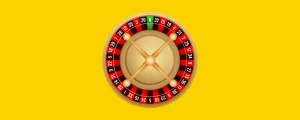
Whether you’re a parent, a spouse, or a friend of someone with a gambling addiction, it’s important to know how to get treatment for your loved one. Whether you’re looking for inpatient or residential treatment, you’ll find a variety of resources below.
Co-occurring disorders
Identifying and treating co-occurring disorders is a challenge. There are various factors that play into the mix. Some of the most common include traumatic experiences, genetics, and environmental influences.
The best approach is to treat both disorders simultaneously. This will minimize the risk of relapse and maximize the effectiveness of treatment. The best approaches also address the underlying causes of both disorders.
The most common co-occurring disorders are substance use and gambling disorders. People with gambling disorders are also more likely to abuse alcohol and drugs. A recent study found that alcohol consumption on the heaviest drinking day was significantly associated with problem gambling.
There are many reasons why gambling and substance use co-occur. For example, a person who loses a large sum at the blackjack table may turn to alcohol or drugs to deal with the emotional and psychological stress of the loss. These substances can help mask the symptoms of gambling euphoria, but they can also make symptoms worse.
Identifying alternatives to gambling
Identifying alternatives to gambling addiction treatment is an important step in the recovery process. It can help you get the best possible results from your treatment. There are many different types of treatment, and it’s important to find the right one for you.
For many people, treatment may include a combination of professional help and a support group. A support group is a safe place for people to go for judgment-free support. They also teach people how to overcome gambling addiction.
Professional help may include behavior therapy, cognitive therapy, or other psychological therapies. Some people may also benefit from pharmacological treatment. These types of therapies target dysregulation in the neurotransmitter systems. Mood stabilizers and antidepressants may help reduce symptoms of gambling addiction.
Self-help approaches, such as gambling self-help workbooks, are also effective. Many self-help interventions for gambling include motivational enhancement strategies. These strategies increase motivation for change and lower resistance.
Cognitive therapies aim to correct patients’ negative thinking. They also address patients’ beliefs and attitudes about winning systems. These beliefs can be a strong trigger for gambling.
Finding a therapist
Oftentimes, the only way to overcome a gambling addiction is to seek professional help. This includes seeking counseling from a licensed mental health professional.
The most important part of the process is acknowledging the problem. The therapist and client work together to develop a problem-solving approach.
Cognitive behavioral therapy is one of the more common methods of treating gambling addiction. It focuses on identifying irrational thought processes and replacing them with healthier ones. This technique works well for people who are highly motivated to stop gambling.
There are also many self-help groups available to people with gambling addictions. These groups provide an outlet to discuss emotions and guilt. These groups also help people learn more about gambling and gambling-related problems.
Gambling addiction can have a serious impact on a person’s physical and emotional health. It can have a negative impact on relationships and finances. It can also create a cycle of stress and pain.
It can be difficult to recognize a gambling problem. Gambling can be a fun and exciting activity for many people. However, the downside is that it can quickly turn into a destructive habit. It can lead to many negative outcomes, such as financial ruin, loss of home and business, and loss of child custody.
Inpatient vs. residential treatment
Whether you should opt for inpatient or residential treatment for gambling addiction depends on your circumstances. For many people, the problem of gambling is too severe to deal with in the community. Inpatient treatment provides a higher level of care. The patient’s situation is monitored by licensed mental health professionals.
Gambling addiction can have a negative impact on many aspects of a person’s life, including finances, relationships, and career. It can also affect families. Inpatient gambling addiction treatment centers offer intensive therapy to help individuals overcome addiction and set up recovery groups. Treatment programs also help patients develop relapse prevention skills.
Treatment for gambling addiction can be done through a number of methods, including group therapy, individual counseling, and motivational therapy. Gamblers can also get help from 12-Step groups and Gamblers Anonymous meetings. Other methods used to treat addiction include cognitive behavioral therapy (CBT) and medication. Inpatient treatment is ideal for compulsive gamblers.
Inpatient programs usually require patients to check into a treatment center and live there for the duration of the program. This allows the patient to focus on healing and recovery while being away from distractions. Some residential treatment centers also offer outpatient services. The average length of stay is 30 days.







